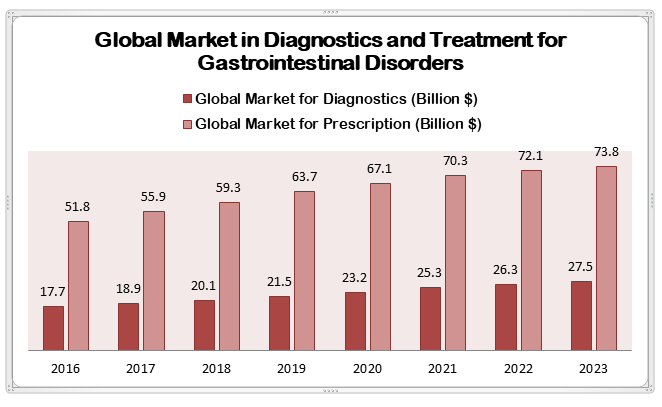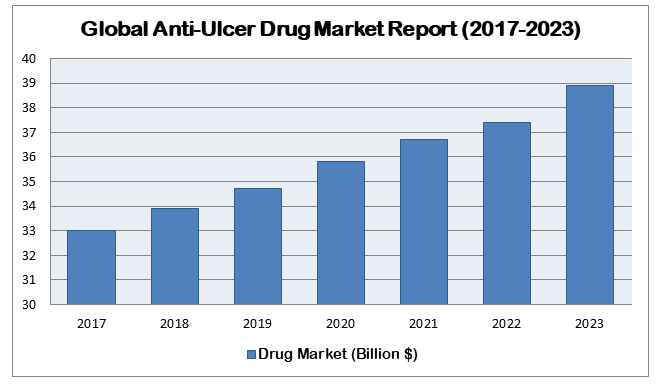Theme:
GASTRO MEET 2023
Conference Series takes the privilege to welcome the participants from all over the world to attend the “22nd International Conference on Gastroenterology and Digestive Disorders” to be held during February 23-24, 2023 at Amsterdam, Netherlands. This Gastro Meet 2023 Conference will focus on the theme “Exploring the Advanced Trends in Treating Digestive Disorders” that provides a global platform to discuss about the present and future challenges across Gastroenterology, Digestive Disorders, Pediatric Gastroenterology and Nutrition, Advancements in Digestive Diseases etc.
Gastro Meet 2023 provides you with a unique opportunity to meet up with peers from both academic circle and industries level belonging to Recent Advances in gastroenterology and have been designed in an interdisciplinary manner with a multitude of tracks to choose from every segment and It explore creative technologies regarding Gastroenterology and Digestive Disorders at the universal scale and aims to accomplish the targeted scientific sessions and recent advancements in the field of Gastroenterology, and Digestive diseases. The goal of this conference is to deliver an outstanding program for exchange of ideas and authoritative views by leading professionals which covers the entire research related to Gastroenterology and Hepatology, Metabolic Syndrome and Obesity, Prevention and Treatment of Gastrointestinal Diseases, Diagnostic and Therapeutic Procedures in Gastroenterology and beyond to confront the most challenging dilemmas in advanced Gastroenterology and uncover new solutions.
Why to attend?
- Keynote forums by renowned Physicians & Professors
- Plenary talks and Poster presentations by global experts
- Open Innovation Challenges
- Global Networking sessions with 50+ Countries
- Novel techniques to benefit your research
- Meet the editors of referred journals, Society and Association members across the Globe
- Engage young researchers and scientists to conduct improved studies and researches which will open up new avenues for a better world.
- Aims at generating public awareness by discussing various advancements and challenges in Food Safety and Health
With members from all over the world concentrated on gaining knowledge about Gastroenterology and Digestive Disorder and its advances; this is your best opportunity to reach the largest assemblage of participants from the Disease Biology Community. Conducting presentations, distribute information, meet with current and potential scientists, make a splash with new advancements and developments in Infectious Diseases, and receive name recognition at this 2-days event.
Target Audience
- Gastroenterologists
- Hepatologists
- Oncologists
- Professors
- Doctors
- Scientists
- Endoscopists
- Physicians
- Microbiologists
- Pathologists
- Surgeons and toxicologists
- Students
- Business delegates
Track 1: Gastrointestinal Immunology and Pathology
The digestive tract could be a complicated network of organs that type an extended pathway from our mouth to the porta of the bod. The canal consists of the mouth, oesophagus, stomach, gut, intestine, and anus. It’s the potential to cause useful disorders within the bod. The digestive tract seems traditional however doesn't perform properly. Constipation, intestine unwellness, anal fissures, diverticular diseases, colon polyps, and willcer|carcinoma} can all be caused by epithelial duct problems. Consumption of low-fiber foods, changes in routine, stress, taking antacids containing calcium/aluminium, and physiological condition area unit all factors that influence the canal. It’s presumably to be seen in folks aged twenty to fifty. It’s treatable by playing correct exercises, living a healthy way, avoiding unhealthy habits, and avoiding unhealthy food feeding.
Track 2: Gastrointestinal Oncology and Radiology
Digestive willcers can have intensive effects on our health, organic process standing, and quality of life. It shows the indications of internal hurt, acute pains, swelling, inability to digest, bother in swallowing or chronic constipation or severe diarrhoea. Radiology may be tired some ways like x-ray, computed axial tomography, resonance imaging. computed axial tomography presently permits broad assessment of abdominal and girdle inflammatory and infectious processes, obstruction, growth detection and staging, and show of vasculature and trauma effects.
Track 3: Pancreatic Diseases
The secretory organ|duct gland} could be a gland behind the abdomen and before of the spine. It creates juices that aid to interrupt down the food and hormones that facilitate to control blood glucose levels. Difficulties with the duct gland will result in varied health issues. The duct gland too plays a job in polygenic disease. In kind one polygenic disease, the beta cells of the duct gland now not produce hypoglycemic agent because the body's system has attacked them. In kind a pair of polygenic disease, the duct gland loses the capability to secrete comfortable hypoglycemic agent in response to meals.
Track 4: Inflammatory Bowel Disease
Inflammatory intestine unwellness (IBD) signifies a group of enteric disorders that cause prolonged inflammation of the canal. It’s in charge of breaking down food, extracting the nutrients, and eliminating any useless material and waste merchandise. Inflammation anywhere on the canal interferes with this traditional method. IBD may be terribly painful and difficult. In rare cases, it would even be life threatening.
Track 5: Gallbladder and Biliary Disease
The vesica could be a little pear-shaped sac set below the liver. Inflammation is that the reason for majority vesica diseases thanks to irritation of the vesica walls, which are additionally referred to as redness. This inflammation is usually thanks to gallstones impeding the ducts resulting in the tiny internal organ and touching the gall to make up. it should finally result in sphacelus (tissue destruction) or gangrene. Biliary unwellness refers to diseases distressing the gall ducts, vesica and different structures concerned within the production and transportation of gall. Gall could be a fluid fashioned by the liver that helps in digestion.
Track 6: Obesity or Bariatric Surgery
Obesity has end up to be a worldwide ill health that adds to several serious and disabling diseases, like kind a pair of diabetes and artery unwellness. Bariatric surgery (weight loss surgery) contains of a variety of measures enforced on people World Health Organization have avoirdupois. This can be completed by reducing the dimensions of the abdomen with a stomachal band or through removal of some of the abdomen or by resecting and re-routing the tiny internal organ to atiny low abdomen pouch.
Track 7: Chronic Liver Disease
Cirrhosis could be a long-run chronic disease. the foremost common reasons area unit infectious disease and different viruses, and alcoholism abuse. different medical issues also can have an effect on it. The injury to the liver typically cannot be reversed. The symptoms could vary, counting on however severe cirrhosis of the liver is. gentle cirrhosis of the liver won't cause any symptoms in any respect. Cirrhosis of the liver could be a progressive disease that happens over time. The injury to the liver will every now and then reverse or improve if the trigger is gone, like stop drinking alcohol or if the virus is correctly treated. the target of the treatment is to cut down the buildup of connective tissue and avert or treat different health issues.
Track 8: Advancements in Digestive Diseases
Any disorder or downside in abdomen tract may be known as biological process unwellness. From previous few years a great deal of specialists and researchers area unit engaged on gastrointestinal system and that they have done an exquisite add this field. Laparoscopies, x-rays, ultrasound, in vitro medicine, cancer screening, resonance imaging, Cholangiopancreatography area unit the various ways of characteristic these sorts of disorders. These kinds of novel inventions area unit useful for the treatment and solidifying the biological process disorders. the hassle on new technologies continues to be happening and it'll profit America to cure the unwellness in brief interval.
Track 9: Gastrointestinal and Digestive Disorders
The digestive tract could be a complicated network of organs that type an extended pathway from our mouth to the porta of the bod. The canal consists of the mouth, oesophagus, stomach, gut, intestine, and anus. It’s the potential to cause useful disorders within the bod. The digestive tract seems traditional however doesn't perform properly. Constipation, intestine unwellness, anal fissures, diverticular diseases, colon polyps, and willcer|carcinoma} can all be caused by epithelial duct problems. Consumption of low-fiber foods, changes in routine, stress, taking antacids containing calcium/aluminium, and physiological condition area unit all factors that influence the canal. it's presumably to be seen in folks aged twenty to fifty. it's treatable by playing correct exercises, living a healthy way, avoiding unhealthy habits, and avoiding unhealthy food feeding.
Track 10: Gastroenterology and Hepatology
Gastroenterology and Hepatology area unit the elements of bod science during which we have a tendency to study regarding the human gastrointestinal system disorders. In these divisions the Researchers area unit concentrating on preventing and treating gastrointestinal system and liver disorders. Dr. and Hepatologists aid the groups of people for providing treatment to those sorts of issues. each medicine and Hepatology area unit being employed to treat liver diseases, cancer of the liver, and liver disorders.
Track 11: Pancreatic Diseases
The secretory organ|duct gland} could be a gland behind the abdomen and before of the spine. It creates juices that aid to interrupt down the food and hormones that facilitate to control blood glucose levels. Difficulties with the duct gland will result in varied health issues. The duct gland too plays a job in polygenic disease. In kind one polygenic disease, the beta cells of the duct gland now not produce hypoglycemic agent because the body's system has attacked them. In kind a pair of polygenic disease, the duct gland loses the capability to secrete comfortable hypoglycemic agent in response to meals.
Track 12: Gastroenterology: Clinical and Diagnostics
The epithelial duct diseases would like treatment, medical specialty treatment area unit separated into a pair of groups- the medication|prescribed drugs|pharmaceuticals} and Over the Counter (OTC) drugs. Epithelial duct medication area unit approved supported the diagnostic outcomes generated through the hematologic or imaging tests. the foremost common diagnosing is completed through examination. The treatments area unit counseled supported digestive tract disorders, digestive tract walls disorders, epithelial duct motility disorders, epithelial duct cancers.
Track 13: Intestinal Rehabilitation
Intestinal Rehabilitation largely deals with the method of restoring enteral autonomy and so material possession freedom from epithelial duct nutrition ordinarily by means that of dietary, medical and infrequently surgical ways. Enteric rehabilitation happens as results of increased intestine adaptation or short intestine syndrome. A coordinated team of gastroenterologists, surgeons and nutritionists provide long-run care to patients with little or deformed intestines.
Track 14: Colorectal Cancer
Colorectal cancer (CRC), conjointly known as intestine cancer, carcinoma, or body part cancer, is that the growth of cancer from the colon or body part (parts of the big intestine).Signs and indications could comprise of blood within the stool, a variation in intestine movements, weight loss, and fatigue. Most body part cancers area unit thanks to maturity and way problems, with solely a minor quantity of cases thanks to underlying genetic disorders. Risk factors comprise of diet, obesity, smoking, and absence of physical activity. Dietary factors that intensify the danger embrace chicken, processed meat, and alcohol.
Track 15: Diagnostic and Therapeutic Procedures in Gastroenterology
Diagnostic medicine is that the methodology that's employed by the doctors and specialists for treating the unwellness by diagnosing of systema alimentarium and these kinds of procedures helps to decrease the pain and improve the case of the suffering persons. Cancer irradiation, therapy, therapeutic examination area unit part of medicine that area unit useful for solidifying and preventing the biological process disorders.
Market Growth of Gastroenterology Research:
Diagnostics and treatment for gastrointestinal disorders saw a $49.6 billion global market in 2015. At a compound annual growth rate of 7.3% from 2016 to 2023, this market is anticipated to increase from almost $51.8 billion in 2016 to $73.8 billion in 2023. Prescription medicines are anticipated to expand at a CAGR of 3.5% from $18.6 billion in 2016 to almost $29.1 billion in 2023. Based on a CAGR of 5.9% for the years 2016–2023, the global market for diagnostics is expected to increase from $17.7 billion in 2016 to $27.5 billion in 2021.
Prescription and over-the-counter gastrointestinal medications make up the two main sectors of the gastrointestinal drugs market. Similar to this, the market for gastrointestinal diagnostics, testing, and vaccines is split into three main categories: medical equipment (endoscopy), vaccines, and diagnostics and testing market. It is further divided into medications used to treat particular gastrointestinal conditions, such as the following:
- Gastrointestinal tract disorders
- Gastrointestinal tract walls disorders
- Gastrointestinal motility disorders
-
Gastrointestinal Cancers
The prevalence of gastrointestinal disorders such as Crohn's disease, inflammatory bowel disease, ulcerative colitis, and similar conditions is also anticipated to rise. One of the main factors driving this market is the increase in the demand and sales of gastrointestinal medications in both developing and developed regions. The market's overall growth is anticipated to be significantly influenced by the main market players' increasing investments in and R&D efforts. The development of innovative alternative remedies and regulatory restrictions are the main market limitations.
Aim of Market Analysis:
The purpose of the market research is to raise public awareness of gastrointestinal diseases and to identify key developments and the gastrointestinal market environment. This analysis looks at numerous therapeutic options now available on the market as well as possible products and product classes that have the potential to significantly affect both the prescription and over-the-counter (OTC) gastrointestinal medicine markets in the future. One of the important therapeutic areas most severely impacted by the generic erosion of blockbusters is the gastrointestinal sector.
Due to government measures to address the lack of medical services in rural parts of developing nations like India and China, demand for ambulatory surgery centres is high throughout Asia Pacific and Europe. Due to the abundance of outpatient surgery centres and government regulations governing the preference for outpatient surgery centres in order to extend the reach of medical facilities, the North American ambulatory surgery centre market is anticipated to experience significant growth rate in the future.
Related Associations and Societies:
Europe:
Albanian Association of Gastroenterology & Hepatology, Austrian Society of Gastroenterology & Hepatology, Byelorussian Gastroenterology Association, Société Royale Belge de Gastro-Entérologie, Vlaamse Vereniging Voor Gastroenterolgie (VVGE), Association of Gastroenterologists & Hepatologists of Bosnia & Herzegovina, Bulgarian Society of Gastroenterology, Croatian Society of Gastroenterology, Czech Society of Gastroenterology, Estonian Society of Gastroenterology, Finnish Society of Gastroenterology, Société Nationale Française de Gastro-Entérologie, Hellenic Society of Gastroenterology, Hungarian Society of Gastroenterology, The Icelandic Gastroenterology Society, Irish Society of Gastroenterology, Società Italiana Di Gastroenterologia Ed Endoscopia Digestiva, Latvian Association of Gastroenterologists, Lithuanian Society of Gastroenterology.
USA:
American Gastroenterological Association, American College of Gastroenterology, Federacion Argentina de Gastroenterologia (FAGE), Sociedad Argentina De Gastroenterologia (SAGE), Sociedad Boliviana de Gastroenterología Y Endoscopia Digestiva, Federação Brasileira De Gastroenterologia, Canadian Association of Gastroenterology, Sociedad Chilena de Gastroenterología, Asociación Colombiana De Gastroenterologia, Asoc. De Especialistas En Gastroenterología Y Endoscopia Digestiva De Costa Rica, Sociedad Cubana De Gastroenterologia, Sociedad Dominicana De Gastroenterología, Sociedad Ecuatoriana De Gastroenterologia, Asociacion Mexicana de Gastroenterologia, Sociedad Nicaragüense Gastroenterología Y Endoscopia Digestiva (SONIGED), Sociedad Paraguaya De Gastroenterología, Sociedad de Gastroenterología Del Perú, Sociedad Venezolana de Gastroenterología.
Asia Pacific:
Asian Pacific Association of Gastroenterology (APAGE), Afghanistan Gastroenterology and Endoscopy Society, Gastroenterological Society of Australia, Bangladesh Gastroenterology Society, Chinese Society of Gastroenterology, The Hong Kong Society of Gastroenterology, Indian Society of Gastroenterology, Indonesian Society of Gastroenterology, The Japanese Society of Gastroenterology, National Association of Gastroenterology of the Republic of Kazakhstan, Pakistan Society of Gastroenterology & GI Endoscopy, The Korean Society of Gastroenterology, Malaysian Society of Gastroenterology & Hepatology, Mongolian Gastroenterology Association, Myanmar Gastroenterology & Liver Society, Philippine Society of Gastroenterology, Gastroenterological Society of Singapore, Sri Lanka Society of Gastroenterology, The Gastroenterological Society of Taiwan, Gastroenterological Association of Thailand, Vietnam Association of Gastroenterology (VNAGE).
Middle East:
African Middle East Association of Gastroenterology (AMAGE), Societé Algerienne Dˆhepato-gastro-enterologie, Azerbaijan Gastroenterologists and Hepatologists Society, Société Burkinabè D’Hépato-GastroEntérologie Et D’Endoscopie Digestive, Societe Camerounaise De Gastroenterologie, Société Ivoirienne De Gastro-entérologie Et D´endoscopie Digestive (SIGEED), Congolese Association of Gastroenterology, D.R. Congo (SOCONGE), Egyptian Association for Research and Training in Hepatogastroenterology (EARTH), Egyptian Association for Study of Liver and Gastrointestinal Diseases (EASLGD), Egyptian Society of Gastroenterology, Ethiopian Gastroenterology Association (EGA), Ghana Association for the Study of Liver and Digestive Diseases, Iranian Association of Gastroenterology and Hepatology, Iraqi Society of Gastroenterology and Hepatology, The Israeli Society of Gastroenterology and Liver Disease, Jordanian Society of Gastroenterology & Hepatology, Gastroenterology Society of Kenya, Lebanese Society of Gastroenterology, Saudi Gastroenterology Association.
Major Hospitals Associated with Gastroenterology:
- Mayo Clinic
- Cleveland Clinic
- Johns Hopkins Hospital
- Massachusetts General Hospital
- Mount Sinai Hospital
- University of Chicago Medical Centre
- Hospital of the University of Pennsylvania
- Ronald Reagan UCLA Medical Centre
- New York-Presbyterian University Hospital of Columbia and Cornell
- Cedars-Sinai Medical Centre
- UPMC-University of Pittsburgh Medical Centre
- Barnes-Jewish Hospital/Washington University
- University of Michigan Hospitals and Health Centres
- Clarian Health
- Duke University Hospital
- University of Texas M.D. Anderson Cancer Centre
Conference Highlights
- Gastrointestinal Immunology and Pathology
- Gastrointestinal Oncology and Radiology
- Pancreatic Diseases
- Inflammatory Bowel Disease
- Gallbladder and Biliary Disease
- Obesity or Bariatric Surgery
- Chronic Liver Disease
- Advancements in Digestive Diseases
- Gastrointestinal and Digestive Disorders
- Gastroenterology and Hepatology
- Pancreatic Diseases
- Gastroenterology: Clinical and Diagnostics
- Intestinal Rehabilitation
- Colorectal Cancer
- Diagnostic and Therapeutic Procedures in Gastroenterology
To share your views and research, please click here to register for the Conference.
To Collaborate Scientific Professionals around the World
| Conference Date | February 23-24, 2023 | ||
| Sponsors & Exhibitors |
|
||
| Speaker Opportunity Closed | |||
| Poster Opportunity Closed | Click Here to View | ||
Useful Links
Special Issues
All accepted abstracts will be published in respective Our International Journals.
- Journal of Gastrointestinal & Digestive System
- Clinical Gastroenterology Journal
- Research and Reports in Gastroenterology
Abstracts will be provided with Digital Object Identifier by










